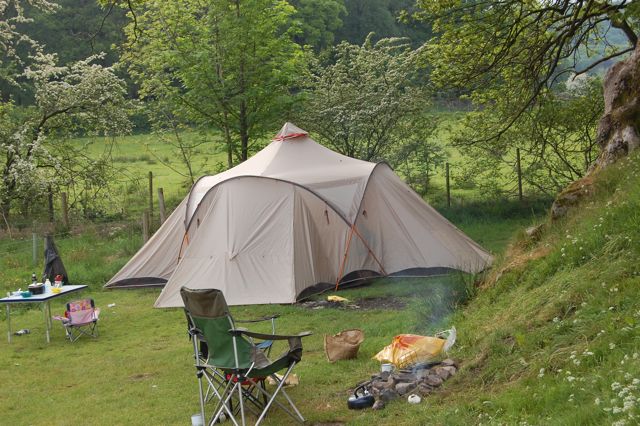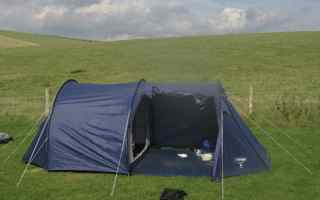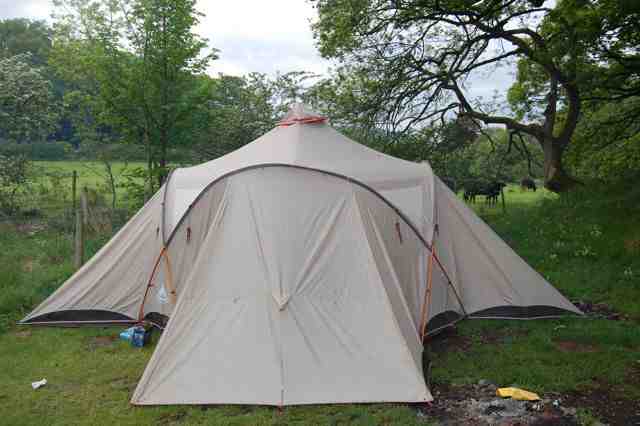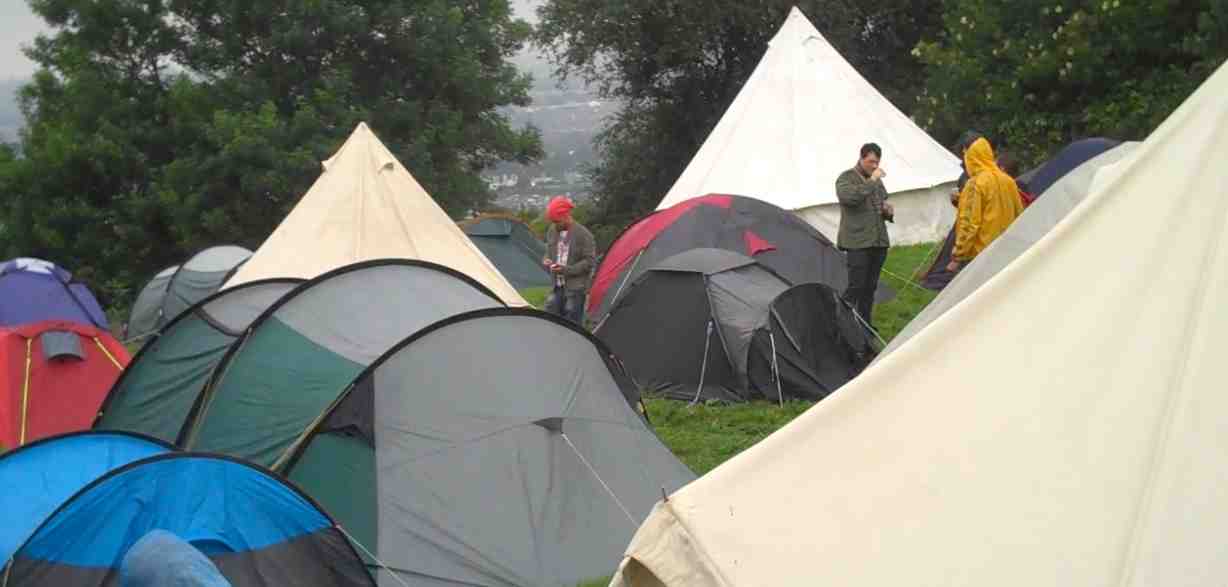Little warning signs and polite notices are the ruin of many a good campsite.
The camp manager needs will power not to put up a little sign every time someone transgresses. Signs proliferate and before you know it, the laundrette has a warning against the washing of dog baskets in the sink. And then your campsite is ruined. Different rules apply at camp. “Camp regulations should be as few as possible but firm and consistent,” notes a pamphlet issued by the Ministry of Education in 1951 advising on the organisation of group camps. But what are those regulations? And can all of them be written down on little signs?
For example, I recently stayed at a campsite where there could easily have been a sign that read:
“Please do not drunk drive to the toilets at midnight in your nightie. Even if it is raining.”
These days, people arrive at a campsite expecting some kind of holiday. It is no such thing. Consumerism creates an outrageous sense of entitlement that camping, reliant on self-sufficiency, preparation and patience, cannot meet. During an interview with a campsite owner, one of the staff confessed that a yurt occupant complained that their hot water bottle was too hot. I offered to draw up the little sign myself:
“Yurt occupants: you’ll get what you’re bloody well given.”
Once you start making signs, it’s hard to stop:
“Couples: Arguments about whose bloody idea it was to camp in the first place should be confined to your car.”
Actually, all sites could benefit from –
“Warning: tents do not afford aural privacy.”
Neither marital arguments nor their opposite bother me (“Polite notice: Campers are advised to get out of their sleeping bags before attempting intercourse.”) In fact, I regard the campsite as a laboratory for studying the modern relationship. At Glastonbury Festival, I missed all the bands and had to find my entertainment in other people’s marriages. I’d never seen a grown man sent back to his tent to change his undies before.
“Warning to men: please change your undies DAILY. Or when the occasion DEMANDS.”
The main bone of contention is noise. I used to play music on little speakers but everyone hates it, no matter how trendy or ambient the playlist. Most campsites have signs suggesting times for silence. More accurate would be:
“Campers please refrain from sharing theories about what really happened at 9/11 after 1am.”
And,
“No cackling.”
Then there is snoring. It is acceptable to complain about the obscene snoring of other campers to their face the morning after. Apparently. All I can do is shrug. However I have made a little sign suggesting that:
“It is not acceptable to climb into the tent of a snorer and press a pillow over their face.”
As I have always found that disturbs my deep and sonorous sleep.
Matthew De Abaitua’s The Art of Camping: The History and Practice of Sleeping Under the Stars is available now.





